Hosted by Larry Haber, Founder and CEO of Leasing REality, AGMB, LLP Commercial Real Estate Managing Partner, and Host of Real Estate REality Check Podcast
Question: What are the negative and unintended consequences of rent and additional rent forbearance?
Answer: Not sure if this question is asked from a tenant or landlord perspective, but from a landlord’s perspective, as long as you can somehow afford the short term rent deferral, and the lease modification agreement has sufficient “bark and bite” to protect the landlord in the event the tenant doesn’t comply with what was agreed to in the agreement, then the landlord should be okay. As to the tenant side, deferral is merely pushing the ball down the road. Whatever the “tenant pleas for rent relief” is, it can’t just address the short term (i.e., whatever the repayment plan may be, it must be something the tenant can afford and comply with). Along those lines, if a tenant is receiving a deferral for April through June, please don’t agree to pay that all back starting in August or September over the next 3 to 4 months. The tenant needs to rebuild — and it may need to make like Drake’s song and “Start[ed] from the Bottom” as to that process — so try and have a repayment plan of no less than 6 months, but hopefully more along the lines of 12 to 18 to 24 months.
Question: How are certain healthcare professionals staying in business that are considered to be “elective in nature”?
Answer: Creativity and taking advantage of technology is one way. A therapist client of mine is conducting virtual therapy consultations for her clients by way of a Zoom HIPAA compliant platform, and because the vast majority of her patients pay by credit card, the good news for doctors and her patients is that they effectively are still there for one another.
Question: How will a business’s closure that had a percentage rent provision be impacted, and any rights to it such as a termination right, if certain prescribed levels aren’t adhered to?
Answer: Interesting conversations would need to be had, but in this case, I feel that a force majeure argument could help the tenant, and if that is the tenant’s biggest “ask” of a landlord, that is a conversation the landlord should be able to compromise quite a bit on.
Question: How will financing be impacted by COVID-19?
Answer: Well, I’ve read and heard from certain developers that banks are getting aggressive — decreasing lines of credit, increasing principal and interest reserves, not taking on clients they don’t have existing relationships with, and potentially resetting underwriting requirements. I also read that when Deutsche Bank pulled financing for the purchase of The Daily News Building in NYC recently and the buyer subsequently pulled out of the transaction, the big question was whether or not SL Green Realty Corp. would keep all or a significant part of the contract deposit. I had a smaller deal get canceled earlier in the week, during the due diligence period mind you, on an assemblage where my client’s property was part of a few buildings being purchased. Hopefully it will come back to life, but who knows. Luckily we negotiated that my client got to keep a small piece of the down payment regardless of whether or not a closing took place, and an additional piece of that deposit when a due diligence period extension was granted.
Question: What are your thoughts about government intervention requiring banks to forbear landlord loan payments and tenant rent payments for 90 days as a simple path forward instead of adding a trillion dollars more to our deficit?
Answer: Partially a good idea, expect (a) 90 days is too long, (b) it may be a better idea to implement this sometime in April for May for 30 days and then see where the world and COVID-19 is then, and (c) even if there is a deferral of real estate taxes for a few months, landlords would still have to pay other operating expenses for their properties.
On a related note, California Governor Gavin Newsom announced on Wednesday, March 25th that five of the country’s largest banks agreed to ease pressure on residential mortgage holders affected by the coronavirus pandemic. Wells Fargo, U.S. Bank, Citibank, and JPMorgan Chase will allow borrowers to defer mortgage payments for three months, and each pledged they would not foreclose or evict borrowers for 60 days and would not report late payments to credit agencies. Around 200 state-chartered banks and credit unions will do the same. Side Note: Hopefully this could set the trend to allow the same forbearance for multi-family mortgagees and owners of commercial buildings with mortgages, which would make it easier for them to digest granting rent holidays to their tenants!
Question: For a retail tenant, how do you ask for a rental relief lifeline from your landlord without showing sales logs?
Answer: In the good old-bad old days of the RTC, dot-coms becoming dot-bombs, and the Great Recession, the answer would be “not so easy!” Today though, if you have been shut down due to government mandates, does it really matter? “No sales at all” is the equivalent. Tenant has payroll to pay, so tenant should convey that they are “trying to come out on the other side, so together we can live as partners happily ever after!” If the tenant is operating still, it would be hard not to provide daily or weekly sales logs … both for the recent past and for any period that rental relief is in effect.
Question: I have a landlord client who needs to send out a residential lease renewal in the near future. The lease covered the period from 6.18.18 – 6.30.19, and the lease was thereafter renewed from 7.1.19 – 6.30.20, is the landlord required to give 60 days’ notice or 90 days’ notice? I’m not clear about the language. At the end of the term they would have been there for 2+ years, but at the time the landlord would issue a renewal it is under the 2 years. Also, does this mean that the tenants has a lease of at least 2 years because there has been a renewal, or is it considered a 1 year lease as each lease was for a 1 year term? What would be the case if the initial lease was from 7.1.18 – 6.30.19 and then had a renewal from 7.1.19 – 6.30.20?
Answer: In order to provide you a bit of context before answering the question, the section of the new rent law that you are referring to (RPL §226-c) provides the following:
In the event that (i) the landlord intends to offer to renew the Lease with a rent increase equal to or greater than five (5%) percent above the then current rent, or (ii) the landlord does not intend to renew the Lease, the landlord must provide the tenant written notice as follows:
-
- If the tenant has occupied the premises for less than one (1) year and does not have a lease term of at least one (1) year, the landlord must provide at least thirty (30) days’ notice;
- If the tenant has occupied the premises for more than one (1) year but less than two (2) years, or has a lease term of at least one (1) year but less than two (2) years, the landlord must provide at least sixty (60) days’ notice; or
- If the tenant has occupied the premises for more than two (2) years or has a lease term of at least two (2) years, the landlord must provide at least ninety (90) days’ notice.
If there is 1 year lease that is renewed for a 2nd year, if the landlord wants to either (i) increase the rent by 5% or more for the 3rd year, or (ii) not renew the lease for a 3rd year, even if at the time the landlord is providing notice it is before the end of the 2nd year, I haven’t seen anything in your questions that would indicate that you could treat that as anything other than a lease term of at least 2 years that requires the landlord to provide at least 90 days‘ notice.
Question: What happens if a landlord can’t complete construction to trigger the lease commencement date?
Answer: As an initial general answer, the majority of commercial leases as drafted would protect a landlord from a claim by a tenant that the lease start date can’t begin. Unfortunately for the landlord though, if lease commencement is tied into the substantial completion of landlord’s work, that clock cannot begin to tick. Two other points:
-
- Fortunately for the tenant, given what I assume is their desire to not have their free rent period begin to run, the free rent and commencement period will be tolled until landlord’s work is substantially completed.
- Wearing the landlord hat, often “outside date” language is negotiated requiring additional free rent to be given to a tenant (such as day for day additional free fixed rent for each day beyond the “outside date” established for landlord to substantially complete its work, that such work isn’t completed) … however, a semi-sophisticated landlord and its counsel hopefully will have negotiated protective language stating that such additional free rent would not be granted if the delay in landlord’s work was due to tenant delay, or more importantly, force majeure events.
Question: It is March 27, and I am a retail tenant, and I am concerned that the April bill for rent will be received any day now. I am not in a position to pay all or most of the rent. What do I do?
Answer: Well, here in New York, aside from the fact that I feel it wouldn’t be a “sound” business practice to send out late or default notices comes early to mid-April for late paying tenants, most would feel it’s not a (in the words of Spike Lee) “Do the Right Thing” action at a personal level either. Moreover, given recent government mandates, as to rent payment enforcement, (1) the courts are closed; (2) existing cases are dormant; (3) new cases are prohibited; and (4) there is essentially no remedy at present to enforce leases and the payment obligations of a landlord’s tenants.
Although there are a myriad of other things to consider, the top of the list should be that of whether you play “offense” and reach out to your landlord to ask him or her to throw you a rental relief lifeline.
Question: In the short-term, why would a landlord consider granting a tenant a rent reduction or deferral?
Answer: Other than the fact that many landlords are nice people, with some in a position financially to “play Santa Claus” in the short term, and others taking the approach that they must extract something in return for their “generosity” (such as adding term to the lease, requiring repayment of the rent holiday to be personally guaranteed, or for a landlord termination right to be agreed to), many also know that a potential bi-product of a landlord not working with their tenant very well will be that of having vacant space on their hands, which is akin to going to an old drive-in movie theater … by yourself … in a taxi cab … with the meter running … it simply makes no sense!


